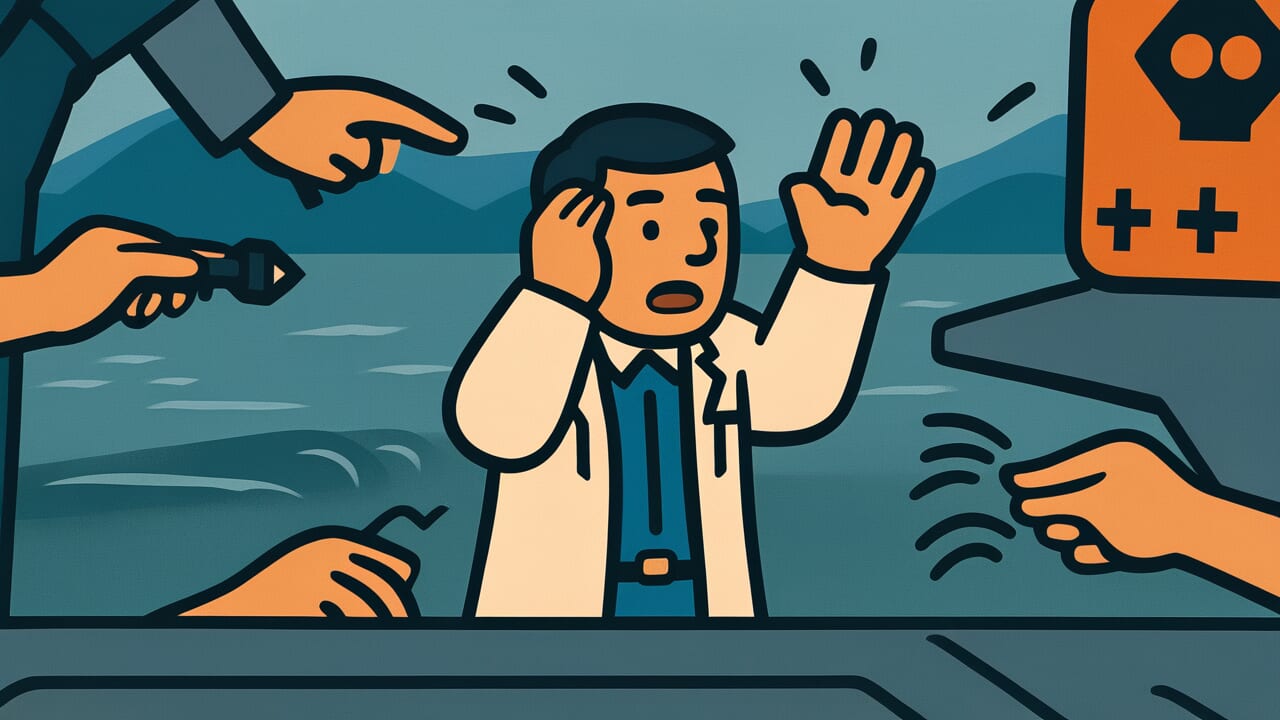How to Read “Risk one’s life when seeing danger”
Ayauki wo mite inochi wo itasu
Meaning of “Risk one’s life when seeing danger”
This proverb teaches that when you encounter a dangerous situation or witness injustice, you should pursue what’s right even if it means risking your life.
You shouldn’t prioritize your own safety above all else.
People use this saying when personal interests clash with social justice.
For example, should you expose a powerful person’s wrongdoing or stay silent? Should you help someone in danger or look away?
These are the heavy choices this proverb addresses.
The reason people use this proverb is to show that the noblest human action isn’t self-preservation. It’s acting for justice.
Today, we rarely face truly life-threatening situations. But the essence of this proverb remains unchanged.
It describes the courage to speak up for what’s right, even when it endangers your career or position.
It’s about standing up against injustice. This proverb asks us what true courage means and what human dignity really is.
Origin and Etymology
This proverb likely comes from the Analects of Confucius, an ancient Chinese classic.
The phrase “Risk one’s life when seeing danger” appears in the chapter called “Xian Wen.”
It’s described as one of the virtues a noble person should possess.
The phrase “risk one’s life” carries a slightly different nuance than simply “losing one’s life.”
In classical texts, it means “to offer” or “to dedicate.” It expresses the determination to act by staking your life.
In Confucius’s time, a noble person didn’t just mean someone of high status. It meant an ideal person with high moral character.
The Analects teaches that when facing a crisis, a true noble person doesn’t run to save themselves.
Instead, they act for justice, even at the cost of their life. This teaching connects deeply with the Confucian concept of “righteousness.”
“Righteousness” means walking the right path as a human being. It means doing what’s right beyond selfish calculations of gain and loss.
Confucian thought came to Japan long ago and greatly influenced the samurai spirit.
This proverb took root in Japanese moral values within that philosophical background.
Usage Examples
- When I saw news about a whistleblower exposing company fraud, I felt they truly embodied “Risk one’s life when seeing danger”
- He reported his boss’s misconduct knowing he could lose his position—this is exactly what “Risk one’s life when seeing danger” means
Universal Wisdom
The proverb “Risk one’s life when seeing danger” has been passed down for thousands of years.
This is because it reflects a fundamental human conflict. We all exist between two forces: survival instinct and moral conscience.
When we sense danger, protecting ourselves is a natural biological response.
But humans also have a strong desire to “be right.” When these two forces collide, we experience our deepest conflicts.
Should I protect myself or pursue justice? The weight of this choice never gets lighter, no matter how times change.
This proverb shows us a truth. True courage isn’t the absence of fear.
It’s choosing the right action while feeling afraid. Human dignity isn’t measured by how much you own.
It’s measured by what you’re willing to stand up for.
Our ancestors understood something important. For society to function, some people must be willing to sacrifice themselves.
And such actions are what make humans more than just biological creatures.
This proverb quietly continues to speak about both the heights of human potential and the difficulty of reaching them.
When AI Hears This
Risking your life in a crisis seems like a foolish choice with only losses.
But when analyzed through game theory, this carries extremely strategic meaning.
Normally, verbal promises are easily broken. For example, just saying “I’ll help you when you’re in trouble” doesn’t guarantee action.
This creates a credibility paradox. Promises that cost nothing are trusted less. Conversely, promises with high costs are trusted more.
Economists call this “costly signaling.”
Someone who actually risks their life to help another has paid an irreversible cost.
This action cannot be faked. You can’t pretend to risk your life. So people around them become convinced: “This person truly protects their allies.”
As a result, they gain more cooperators throughout their life. The probability of receiving help when in trouble increases dramatically.
What’s interesting is that this mechanism evolved within repeated games.
Though it’s a short-term loss, it gains the long-term asset of reputation. Mathematically speaking, one life-risking action becomes an investment that generates decades of cooperative relationships as dividends.
Human moral sense is actually the crystallization of strategic intelligence optimized over thousands of generations.
Lessons for Today
This proverb teaches you a question: what truly matters in life?
We make small compromises every day. We swallow words we should say. We look the other way. We choose not to make waves.
This isn’t necessarily bad. But sometimes we need to stop and think.
Modern society rarely demands we risk our lives. But moments that test our beliefs come to everyone.
When you notice wrongdoing at work. When you see someone being bullied. When you face social injustice.
At those moments, what will you protect? What will you stand up for?
This proverb isn’t telling you to become a perfect saint.
Rather, it teaches the importance of having a core within yourself. Values you won’t compromise. Beliefs you want to protect.
Having these things shapes who you are as a person.
Start with small things. Have the courage to speak up about what you think is wrong.
When someone is struggling, don’t ignore them—reach out your hand. These accumulations lead to courage when it really matters.



Comments